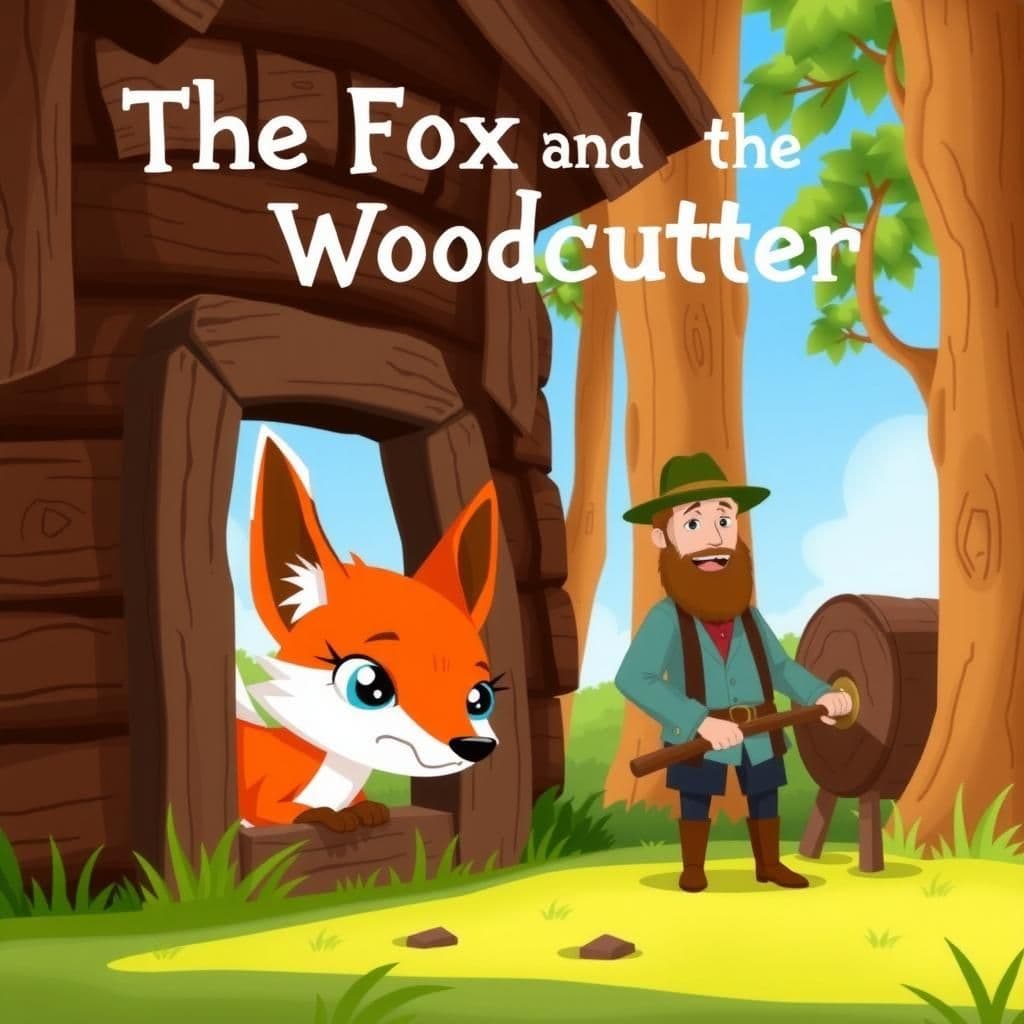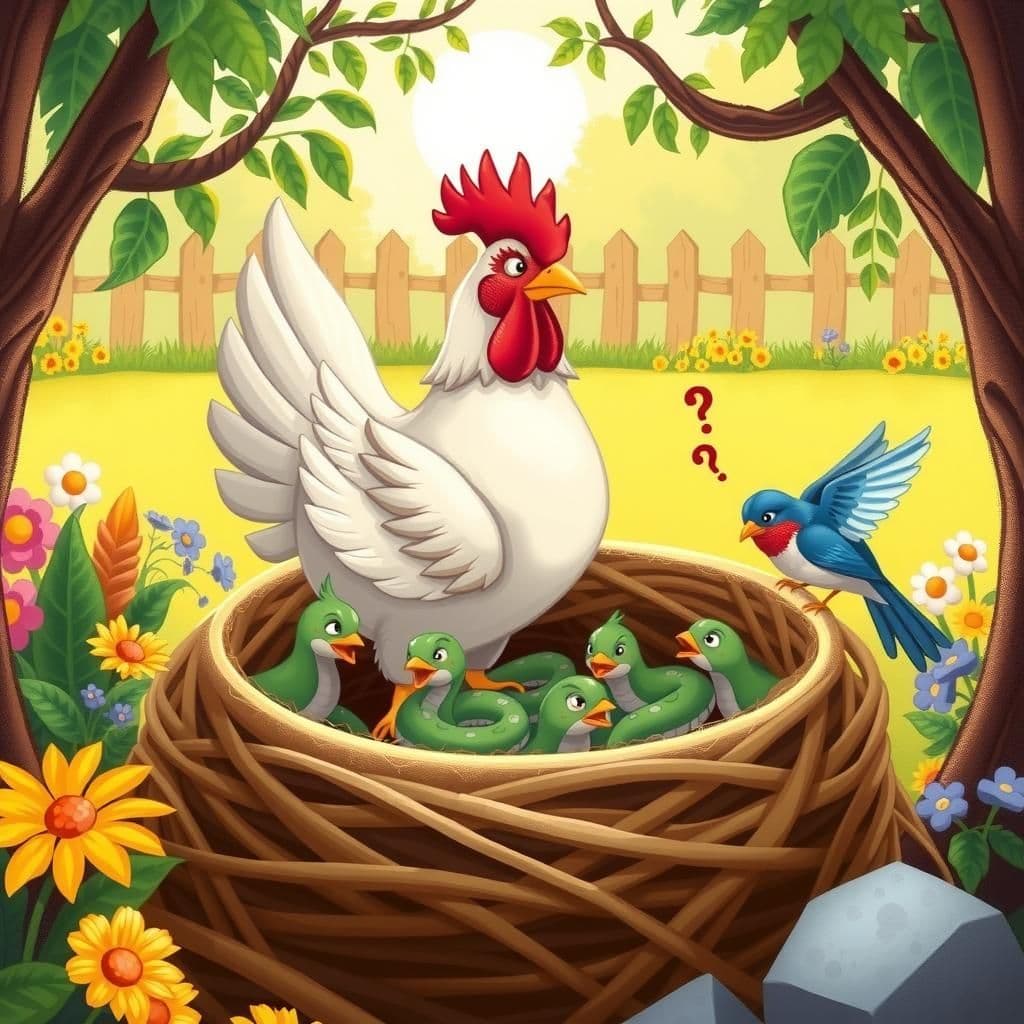The Fox and the Woodcutter
In this life-changing story with a moral, a fox, pursued by hounds, seeks refuge with a woodcutter who deceitfully denies the fox's presence to the huntsman while gesturing towards the hut where the fox hides. Once safe, the fox criticizes the woodcutter for his duplicitous actions, stating that he would have expressed gratitude if the woodcutter's deeds had matched his words. This short story serves as a reminder of the simple lessons from stories about integrity and the importance of aligning actions with words, making it a valuable tale for students and adults alike.

Reveal Moral
"Actions speak louder than words; true gratitude is shown through genuine deeds, not mere promises."
You May Also Like

The Hen and the Vipers
In the entertaining moral story "The Hen and the Vipers," a hen hatches a brood of vipers, prompting a swallow to criticize her for nurturing creatures that could harm her. The hen calmly defends her choice, stating that she plans to enjoy one of the vipers as a delicacy, illustrating a simple lesson about making the most of one's circumstances. This quick read story delivers a well-known moral about pragmatism and the complexities of nurturing.

The Crow and the Sheep
In the very short moral story "The Crow and the Sheep," a troublesome crow humorously bullies a sheep by riding on its back, showcasing her tendency to target the weak while avoiding stronger animals. The sheep points out that such behavior would not be tolerated by a dog, but the crow justifies her actions, claiming they help her survive. This easy small story with moral lessons highlights the importance of recognizing true strength and the consequences of bullying.

The Lion the Wolf and the Fox
In "The Lion, the Wolf, and the Fox," a sick lion receives visits from all the animals except the Fox, which the deceitful Wolf exploits to accuse him of disrespect. When the Fox arrives, he cleverly defends himself by claiming to have sought a cure, ultimately leading to the Wolf being flayed alive as punishment for his ill intentions. This culturally significant moral story emphasizes the importance of promoting good rather than ill will towards others, making it one of the best moral stories for valuable life lessons.